Understanding Cocaine Addiction

Cocaine addiction is a complex condition characterized by compulsive drug-seeking and use despite harmful consequences. It affects millions of individuals worldwide and poses significant health risks to get see Pacific Ridge.
Overview of Cocaine Addiction
Cocaine is a powerful stimulant drug that can lead to addiction after just a few uses. It works by increasing the levels of dopamine in the brain, producing feelings of euphoria and energy.
Factors Contributing to Cocaine Addiction
Several factors can contribute to the development of cocaine addiction, including genetic predisposition, environmental influences, and underlying mental health issues. Stress, trauma, and peer pressure can also play a role in initiating and perpetuating addiction.
Effects of Cocaine Abuse on the Brain and Body
Cocaine abuse can have devastating effects on both the brain and body. Chronic use can lead to neurological changes, such as impaired decision-making and memory problems, as well as cardiovascular issues, respiratory problems, and gastrointestinal complications.
Treatment Approaches for Cocaine Addiction
Treating cocaine addiction often requires a combination of medical and behavioral therapies to address the physical, psychological, and emotional aspects of the disease.
Medical Detoxification
Medical detoxification, or detox, is the process of removing cocaine from the body while managing withdrawal symptoms. It is typically the first step in addiction treatment and is conducted under the supervision of medical professionals.
Purpose and Process of Medical Detox
The primary goal of medical detox is to help individuals safely and comfortably withdraw from cocaine while minimizing the risk of complications. The process may involve the use of medications to alleviate withdrawal symptoms and stabilize the individual’s condition.
Medications Used in Cocaine Detox
While there are no specific medications approved for the treatment of cocaine addiction, certain medications may be used off-label to manage withdrawal symptoms and cravings. These may include antidepressants, anticonvulsants, and medications to address specific symptoms like insomnia or anxiety.
Supervised Withdrawal Management
Detoxification is conducted in a supervised medical setting to ensure the individual’s safety and well-being. Medical staff monitor vital signs, provide supportive care, and adjust medications as needed to manage withdrawal symptoms effectively.
Behavioral Therapies
Behavioral therapies are essential components of cocaine addiction treatment, helping individuals address the underlying issues driving their drug use and develop coping strategies to maintain sobriety.
Cognitive Behavioral Therapy (CBT)
CBT is a widely used therapeutic approach that helps individuals identify and change negative thought patterns and behaviors associated with cocaine addiction. It focuses on teaching practical skills to manage cravings, avoid triggers, and cope with stress.
Contingency Management
Contingency management is a behavioral therapy that uses positive reinforcement to encourage abstinence from cocaine. Individuals may receive rewards or incentives for achieving specific treatment goals, such as attending therapy sessions or passing drug tests.
Motivational Interviewing
Motivational interviewing is a client-centered counseling approach that helps individuals explore their ambivalence about change and increase their motivation for recovery. It involves collaborative goal setting, empathy, and nonjudgmental support.
Holistic Treatment Modalities
In addition to medical and behavioral therapies, many cocaine rehab centers offer holistic treatment modalities to address the individual’s physical, emotional, and spiritual well-being.
Mindfulness-Based Interventions
Mindfulness practices, such as meditation and deep breathing exercises, can help individuals cultivate awareness of their thoughts and emotions and develop healthier ways of coping with stress and cravings.
Yoga and Meditation
Yoga and meditation are often incorporated into addiction treatment programs to promote relaxation, improve mood, and enhance overall well-being. These practices can help individuals reconnect with their bodies and cultivate a sense of inner peace and balance.
Art and Music Therapy
Art and music therapy provide creative outlets for individuals to express themselves and process their emotions in a supportive and nonverbal manner. These modalities can promote self-discovery, increase self-esteem, and enhance communication skills.
Residential Cocaine Rehabilitation Programs
Residential cocaine rehabilitation programs offer intensive treatment and support in a structured and therapeutic environment.
Structure and Environment
These programs provide round-the-clock supervision and support, ensuring that individuals have access to care and assistance whenever they need it. The drug-free living environment promotes abstinence and fosters a sense of community and camaraderie among participants.
Individual and Group Therapy
Individual and group therapy sessions are integral components of residential rehab programs, allowing individuals to explore their thoughts and feelings in a safe and supportive setting. These sessions provide opportunities for self-reflection, peer support, and skill-building.
Aftercare Planning and Relapse Prevention
After completing a residential cocaine rehabilitation program, individuals receive ongoing support and guidance to help them maintain their sobriety and prevent relapse.
Individualized Aftercare Plans
Aftercare plans are tailored to each individual’s unique needs and circumstances, incorporating elements such as ongoing therapy, support group participation, and access to community resources. These plans provide a roadmap for long-term recovery and help individuals navigate the challenges of post-rehab life.
Long-Term Recovery Support
Long-term recovery from cocaine addiction requires ongoing effort and commitment. Individuals are encouraged to participate in aftercare activities, engage in healthy lifestyle behaviors, and build a strong support network to sustain their sobriety over time.
Monitoring and Follow-Up
Regular check-ins and follow-up appointments are essential to monitor progress, address any concerns or challenges, and adjust treatment plans as needed. These ongoing assessments help individuals stay on track with their recovery goals and identify early warning signs of relapse.
Dual Diagnosis Treatment for Cocaine Addiction and Co-Occurring Disorders
Many individuals struggling with cocaine addiction also have co-occurring mental health issues, such as depression, anxiety, or trauma-related disorders. Dual diagnosis treatment addresses both substance use and mental health issues simultaneously.
Understanding Dual Diagnosis
Dual diagnosis, also known as co-occurring disorders, refers to the presence of both substance use and mental health disorders in an individual. These conditions often interact and exacerbate each other, making treatment more challenging.
Integrated Treatment Approaches
Integrated treatment approaches combine evidence-based interventions for substance use and mental health disorders, providing comprehensive care that addresses the individual’s unique needs and circumstances.
Addressing Both Substance Use and Mental Health Issues
Dual diagnosis treatment focuses on treating both the addiction and the underlying mental health disorder concurrently, rather than treating them separately. This integrated approach improves treatment outcomes and reduces the risk of relapse.
Importance of Comprehensive Assessment and Diagnosis
Comprehensive assessment and diagnosis are essential for identifying co-occurring disorders and developing tailored treatment plans that address the individual’s specific needs.
Identifying Underlying Factors Contributing to Addiction
Understanding the underlying factors contributing to addiction, such as trauma, stress, or genetic predisposition, is crucial for effective treatment. By addressing these root causes, individuals can achieve lasting recovery and improve their overall quality of life.
Tailoring Treatment Plans to Individual Needs
Treatment plans are individualized to address each person’s unique combination of substance use and mental health issues. This personalized approach ensures that individuals receive the support and care they need to achieve their recovery goals.
Choosing the Right Cocaine Rehab Center
Choosing the right cocaine rehab center is a critical decision that can impact the success of treatment and long-term recovery.
Factors to Consider When Choosing a Rehab Center
Several factors should be considered when selecting a cocaine rehab center, including accreditation, treatment approaches offered, success rates, and patient reviews.
Accreditation and Licensing
Reputable rehab centers are accredited by recognized organizations and licensed to provide addiction treatment services. Accreditation ensures that the facility meets specific standards of care and adheres to best practices in addiction treatment.
Treatment Approaches Offered
Different rehab centers may offer varying treatment approaches, such as medical detoxification, behavioral therapy, and holistic modalities. It’s essential to choose a center that offers evidence-based treatments tailored to individual needs.
Success Rates and Patient Reviews
Researching a rehab center’s success rates and reading patient reviews can provide insight into the quality of care and the effectiveness of treatment programs. Positive testimonials from former clients can offer reassurance and confidence in the facility’s ability to help individuals recover from cocaine addiction.
Touring the Facility and Meeting Staff
Before committing to a rehab center, it’s advisable to tour the facility in person and meet with staff members to ask questions and learn more about the treatment programs and amenities offered.
Assessing the Environment and Amenities
During the tour, pay attention to the facility’s environment, cleanliness, and amenities. A comfortable and welcoming environment can enhance the treatment experience and promote feelings of safety and security.
Discussing Treatment Options and Philosophies
Take the opportunity to discuss treatment options and philosophies with staff members, including therapists, counselors, and medical professionals. Understanding the approach to addiction treatment and the available resources can help individuals make informed decisions about their care.
Financial Considerations and Insurance Coverage
Finally, consider the financial aspects of treatment, including costs, insurance coverage, and payment options. Many rehab centers accept insurance and offer financing or sliding scale fees to make treatment more accessible.
Understanding Costs and Payment Options
Obtain detailed information about the costs of treatment and any additional fees or expenses involved. It’s essential to understand what services are included in the price and whether there are any out-of-pocket expenses.
Verifying Insurance Coverage and Benefits
If using insurance to cover the cost of treatment, verify coverage with the rehab center and the insurance provider. Understand the extent of coverage, any limitations or restrictions, and the process for filing claims and receiving reimbursement.
In conclusion, cocaine addiction is a serious and complex condition that requires comprehensive treatment and support. By understanding the various aspects of cocaine addiction, exploring available treatment approaches, and choosing the right rehab center, individuals can take proactive steps towards recovery and reclaiming their lives from addiction. If you or someone you know is struggling with cocaine addiction, don’t hesitate to seek help from a reputable rehab center like Pacific Ridge. With the right treatment and support, recovery is possible.


